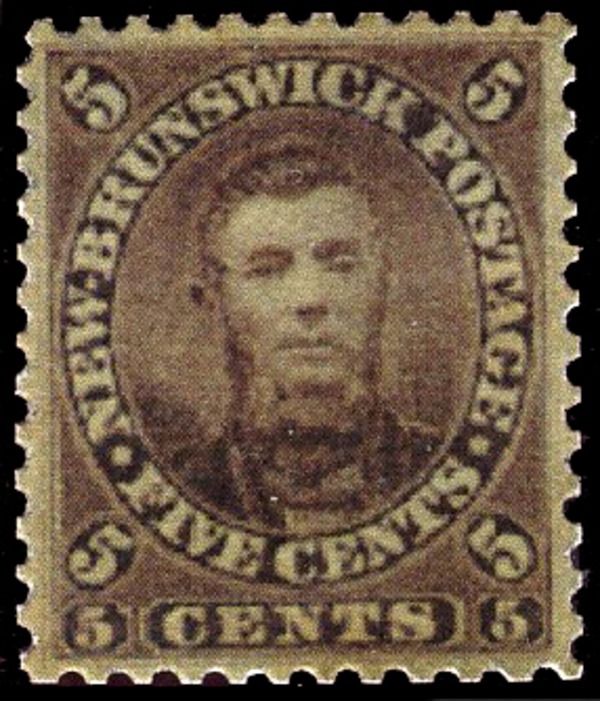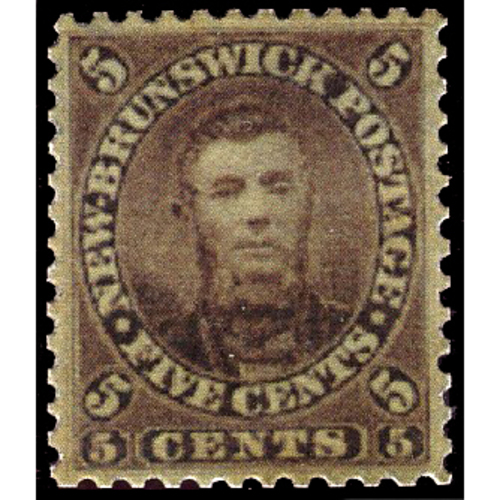
Source: Courtesy of Wikimedia Commons
CONNELL, CHARLES, lumberman, magistrate, and politician; b. in 1810 in Northampton, N.B., one of 12 children of Charles Connell Sr, a Connecticut loyalist, and Mary Palmer; d. 28 June 1873 at Woodstock, N.B.
Charles Connell received a public school education in Northampton and later embarked on a career as a general businessman. He moved to Woodstock, New Brunswick, where he soon became one of Carleton County’s leading lumbermen. In 1835 he married Ann Fisher, sister of Charles Fisher; they had four sons and three daughters. Connell took an active interest in local affairs and was justice of the peace for many years; he later became a justice of the Inferior Court of Common Pleas for Carleton County.
Connell’s career as a politician began in 1846 when he was first elected to the assembly. In 1849 he was appointed to the Legislative Council, but resigned in 1851 and was subsequently returned as a member of the lower house. In 1858 he became postmaster general in Charles Fisher’s government and held this position until his defeat in the election of 1861. Connell’s chief claim to fame lies in an incident which occurred while he held the cabinet post. A new issue of stamps was needed in 1860. When the stamps were released one bore the likeness of Connell rather than that of Queen Victoria or some other member of the royal family. There was a storm of protest, the issue was withdrawn, and Connell resigned. The Connell stamp went on to become a collector’s item among philatelists and a mint copy is now valued at $1,000.
Charles Connell returned to the assembly in 1864 and was re-elected in the confederation elections of 1865 and 1866. He was a supporter of Samuel Leonard Tilley* and his efforts to have New Brunswick enter confederation. For a short time in 1866 and 1867 Connell served as surveyor general in Robert Duncan Wilmot*’s cabinet. Eager to broaden his field of political endeavour, Connell sought election to the first dominion parliament and won in Carleton County by acclamation. In the general election of 1872 he was again returned by acclamation, which attests both to his personal influence and to the apathy of the opposition.
Because party lines were not sharply drawn in New Brunswick during the early years of the confederation period, it is difficult to give Connell a political label. In New Brunswick politics he was a Liberal. As a supporter of confederation, he initially voted with Sir John A. Macdonald* and his coalition in the House of Commons, but thereafter generally supported Alexander Mackenzie* and the Liberals. However, as with many New Brunswick politicians, parochial sentiments rather than party affiliation usually decided his vote.
Charles Connell, an mp until his death, was survived by his wife, three sons, and three daughters. As a loyalist, a lumber merchant, a man of little education but a host of political connections, Connell epitomized the New Brunswick politicians of his era.
PAC, MG 24, A20 (Edmund Head papers), letter book, 3, p.622; MG 27, I, D15 (Tilley papers), Charles Watters to S. L. Tilley, 23 April 1860; Charles Connell to Tilley, 27 April 1860; A. J. Smith to Tilley, 27 April 1860. Morning Freeman (Saint John, N.B.), 25 July, 10 Sept. 1867; 9 July 1872. New Brunswick Reporter (Fredericton), 24 July 1872. St Croix Courier (St Stephen, N.B.), 14 June 1867. Saint John Daily News, 12 Aug. 1872. Can. parl. comp., 1869. Waite, Life and times of confederation, 233.
Cite This Article
Charles F. MacKinnon, “CONNELL, CHARLES,” in Dictionary of Canadian Biography, vol. 10, University of Toronto/Université Laval, 2003–, accessed April 1, 2025, https://www.biographi.ca/en/bio/connell_charles_10E.html.
The citation above shows the format for footnotes and endnotes according to the Chicago manual of style (16th edition). Information to be used in other citation formats:
| Permalink: | https://www.biographi.ca/en/bio/connell_charles_10E.html |
| Author of Article: | Charles F. MacKinnon |
| Title of Article: | CONNELL, CHARLES |
| Publication Name: | Dictionary of Canadian Biography, vol. 10 |
| Publisher: | University of Toronto/Université Laval |
| Year of revision: | 1972 |
| Access Date: | April 1, 2025 |



